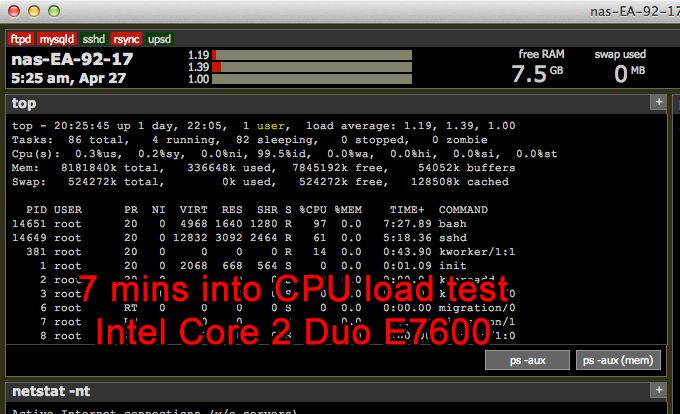Php 5 3 8 For Readynas X86 X64
The x64 builds of PHP 5 for Windows are experimental. Php 5 3 8 For Readynas X86 Tablet Windows. 0 Comments Leave a Reply. Write something about yourself. Php 5 3 8 For Readynas X86 Processor Architecture. Powtoon Free Download Crack Of Idm. Latest trending topics being covered on ZDNet including Reviews, Tech Industry, Security, Hardware, Apple.

VMware ESX software has been tested and deployed in a variety of storage network environments. This guide describes the storage devices currently tested by VMware and its storage partners. ESX, ESXi Embedded and ESXi Installable are equivalent products from a storage compatibility perspective. In this guide we only explicitly list ESX compatibility information. If a product is listed as supported for ESX, the product is also supported for ESXi Embedded and ESXi Installable corresponding versions.
Note: Boot from SAN (Fibre Channel, Fibre Channel over Ethernet, SAS, or iSCSI) is not supported with ESXi version 4.0 and earlier. Basic Greek Phrases Pdf Editor. If you are having a technical issue with 3rd party HW/SW and it is not found on this list, please refer to our 3rd Party HW/SW support policy. VMware works closely with each of its OEMs to drive towards mutual support of ESX at the time of announcement.
Due to different product release cycles, levels of testing, and OEM agreements, not all OEM devices will be supported at the general availability date of a new version of ESX. We recommend contacting the OEM vendor for the best information on when their device is planned to be certified with Virtual Infrastructure. For further details about array firmware, storage product configurations and best practices, please contact the storage vendor. NOTE: The use of an external enclosure, or JBOD connected to a supported SAS/SCSI controller in a supported server is supported, as long as there is no disk sharing among multiple servers or SAS/SCSI cards. This SAN HCL lists storage devices starting with ESX 3.0. Teamviewer 8 Serial Number Txt. x onwards.
It does not include older ESX 2.5.x or earlier versions listed in. Please contact your storage vendors if you do not find devices certified in the SAN HCL list. Microsoft Windows Failover Cluster with ESX Windows Clustering refers Cluster Services in Windows operating systems in a shared disk configuration between two virtual machines or a virtual machine and a physical system. Such clustering is certified only with a subset of arrays listed in this guide.
Previously Failover Clustering was called MSCS. Before installing VMware ESX software with your storage array, please examine the lists on the following pages to find out whether your array and configuration are supported. Please refer to your storage vendor for more information and configuration details.
Windows Failover Cluster support with ESX 3.0.x Below table shows the supported list of Windows OS, FC HBA speed and drivers. Windows Failover Cluster support with ESX 3.5.x MSCS/Failover cluster is supported with ESX 3.5 with both 32 bit and 64 bit VMs running - Windows 2000 SP4 and - Windows 2003 (x86 and x64) up to and including SP2 Only 4Gb Emulex and Qlogic FC HBAs are supported. Windows Failover Cluster support with ESX 4.0 With native multipathing (NMP), clustering is not supported when the path policy is set to round robin.
Please see 'Setup for Failover Clustering and Microsoft Cluster Services' for limitations on MSCS support with PSA. Virtual SCSI adapter and Windows OS supported - LSI Logic Parallel for Windows Server 2000 SP4 - LSI Logic Parallel for Windows Server 2003 RTM (x86 and x64) up to and including SP2 - LSI Logic SAS for Windows Server 2008 (x86 and x64) up to SP1 2. Only 4Gb Qlogic and Emulex Fibre Channel HBAs are supported. The driver versions supported are as follows: qla2xxx-400.821.kl.38vmw qla4xxx-400.5.01.00.vml lpfc820-400.2.0.30.49vmw PSA Plug-ins with ESX 4.x and ESX 5.x Array operating modes and path selection behavior are supported through the Pluggable Storage Architecture (PSA) framework. Storage partners may (1) provide their own Multi-Pathing Plug-ins (MPP), (2) use Storage Array Type Plug-ins (SATP) and Path Selection Plug-ins (PSP) offered by VMware 's Native Multi-pathing (NMP) or (3) provide their own SATP and PSP. The plug-ins supported with a storage array are noted in the 'Mode' and 'Path Policy' columns of the 'Model/Release Details' page. The path policy of VMW_PSP_RR may also be supported but not be necessarily listed in the 'Mode' and 'Path Policy' columns of the 'Model/Release Details' page.